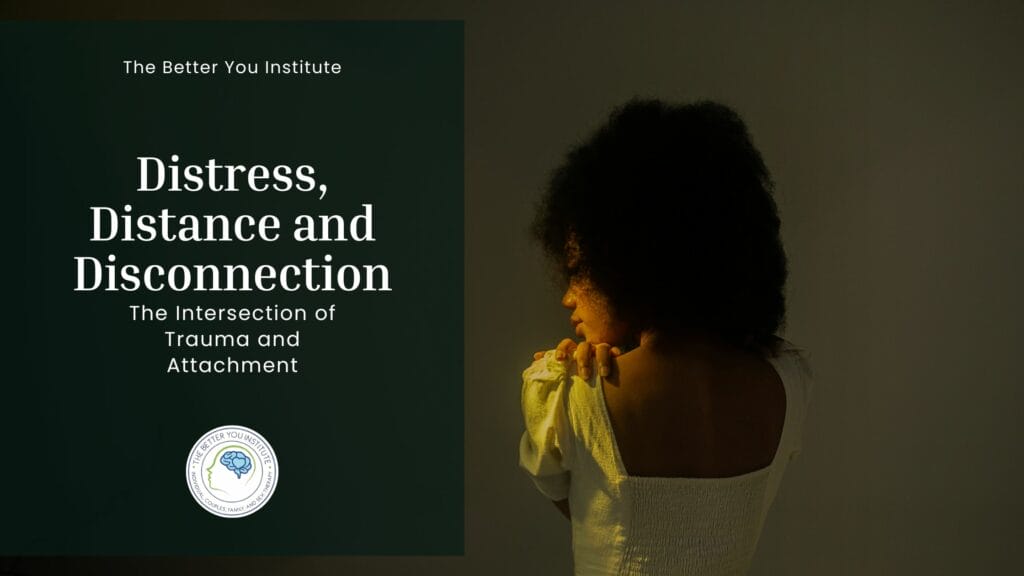If you have been the empath in a romantic relationship with someone whom has narcissistic traits, you may relate to the manipulated and calculated behaviors seen in the narcissist love bombing cycle. Narcissistic traits involve grandiosity, lack of empathy, and a need for admiration to regulate a fragile sense of self and low self-esteem. In this article, we will go over what narcissistic love bombing is in the narcissistic abuse cycle and how to recognize love bombing so that you can avoid getting stuck in narcissistic abuse love bombing cycle.
Personality disorders such as narcissistic personality disorder (NPD) often develop from some form of emotional pain/ physical abuse or neglect in early childhood development. Modeling of proper self-soothing or socialization didn’t happen for the afflicted individual. Due to the individual with NPD’s intense need to regulate their self-esteem, they ignore their partner’s boundaries in the relationship in favor of their needs. The person with NPD tends to crave control of their partner to regulate their self-esteem best. Typically, control is achieved through the love bombing cycle of abuse.
Table of Contents
What is narcissist love bombing?
Love bombing is when you are showered with non-stop gifts, compliments, and attention. This begins a cycle of psychological abuse where the love bomber withholds love and attention to manipulate you. Being showered with love can feel so good! It can be an instant confidence boost to feel so wanted and appreciated by someone. Yet, something doesn’t feel sincere. You can’t put your finger on it, but it’s there. You may have become your partner’s narcissistic supply’ (i.e., a fix to boost their ego).
An Example of The Narcissistic Abuse Love Bombing Cycle
Stage One: Love Bombing
To give you an example of love bombing, I will tell you the story of Andrea. Andrea had been dating her boyfriend, Mike, for about a year. She recently ended the relationship due to him cheating on her. After the breakup, Mike started showering her with the most beautiful love letters she’s ever been given, along with thoughtful expensive gifts. Andrea was at once swept away, yet suspicious. Mike had never acted like this in their relationship, not even in the beginning. His character was inconsistent; He was hot and cold.
Andrea’s attempts to understand Mike’s new behaviors left her confused. His grandiose gestures felt manic to Andrea. Mike was attempting to recapture their love at an unnatural pace. Andrea felt overwhelmed by this attention to the point where she found herself disoriented.
Mike’s new behaviors, though confusing, left Andrea feeling hopeful, but she needed space to process her feelings accurately. However, Mike would not give Andrea the space she needed. He feared that Andrea’s space would create distance between them, and she would leave him again, which would be detrimental to his self-esteem. Andrea’s rejection was a blow to his fragile ego. He needed Andrea back to feel good about himself (i.e., Mike needed a narcissistic supply).
Logically, Andrea knew this push/pull cycle would continue. Yet, torn because, on an emotional level, she wanted the love that Mike promised her. There was a part of her that felt loved by the actions he was taking. However, she saw ahead to the endless cycle of Mike resorting back to lousy behavior once he got bored and then begging for her back once she leaves.
Stage Two: Devalue
Andrea attempted to set a boundary. She reached out to Mike, stating that she cares for Mike but that it wouldn’t be possible for her to trust him again. She would not like to get back together, and she would also appreciate it if he stopped contacting her. Mike continued to pursue her despite her explicit request that he stop contacting her. He became enraged. How could she reject him after he had spent so much time and money on her to get her back? He persisted and stated to Andrea that she didn’t “know who she was messing with” and would “never get another guy like him.” Andrea blocked him on all forms of communication platforms. Then the gifts in the mail started. Mike started sending gifts that were over the top and, at times, bizarre.
Andrea would only unblock Mike briefly to ask him again to please leave her alone for good. She even threatened to go to the police. The gifts kept coming in the mail and were getting weirder. Mike felt entitled to Andrea’s attention, and her refusal to respond enraged him. The devaluing process of the narcissistic abuse love bombing cycle had begun with Mike not respecting Andrea’s boundaries, threatening her, and putting her down. The narcissistic devaluation phase is clear when he objectified her to feed his ego.
Stage 3: Discard
If Andrea had fallen for his narcissistic love bomb, Mike would have started his narcissistic relationship patterns all over again. The narcissistic emotional abuse cycle would go like this: Love bomb → devalue –> discard → hoover. Following Mike’s love bomb, he would have begun to devalue her through criticisms, gaslighting, and passive-aggressive jokes. After pent-up tension, some form of an explosion would occur, potentially leading to the relationship being discarded and/or Mike cheating on Andrea again.
Stage 4: Hoovering
After discarding the relationship, the person driving the narcissistic abuse cycle will likely hoover. Hoovering involves various manipulative tactics to stay close to the survivor; Examples include: insincere apologies, reaching out randomly, reaching out on important dates, desperately needing help, making grandiose promises, etc. If you recognize that you are in the hoovering part of the abuse cycle, the best thing you can do to protect yourself is to end contact, and hopefully, the narcissist will find a new supply source to feed their ego.
Check List of Warning Signs for The Narcissistic Abuse Love Bombing Cycle
Things to look for in your partner:
 Is there something about the person’s character that seems inconsistent? Are they hot and cold – One day, they are clingy and smothering, and the next day they ignore your calls/texts?
Is there something about the person’s character that seems inconsistent? Are they hot and cold – One day, they are clingy and smothering, and the next day they ignore your calls/texts?- Does the pacing of the relationship make sense?
- When they give you compliments, do they feel like they’re somewhat about themselves? For example: That shirt I bought you looks good on you; I have excellent taste, huh!?
- Does this person seem possessive and checks in all the time but frames it that they are doing it for your safety?
- They violate your boundaries: you set a limit such as: “I’m not ready for you to meet my children yet, please do not come over to my house this weekend,” and then your narcissistic partner stops by to “surprise” you in the middle of the day with candy for your children. Or, you ask them not to contact you and state that you will reach out at night after your children have gone to bed, but they call you several times throughout the day to ask what you’re doing.
- Are they short-tempered or frequently become excessively angry?
- Do they cut you off while you’re talking despite them asking you a question?
- Are they demeaning/critical toward you?
- Do they have a high sense of grandeur seeming full of themselves without much to back it up?
- Do they constantly need reassurance and praise?
- Are they entitled?
- Do they use their loved ones (family, friends)?
Things to pay attention to within yourself:
- Do you feel overwhelmed /disoriented by the attention?
- Are you not given the space to process your feelings properly?
- Is your intuition/gut giving you pause about pursuing the relationship with this person?
- Do you feel criticized or small within the relationship?
- Do you feel a sense of autonomy or agency within this relationship?
- When you have hope for positive things in the relationship, do they come to fruition, or are you often left lead on and disappointed?
- Are you starting not to trust yourself?
- Do your boundaries feel violated regularly?
Healthy versus Unhealthy Relationships
Not all partners sending you love letters and flowers are narcissistically love bombing. To be love bombed is to be included in the narcissistic abuse cycle often associated with the abuser having a narcissistic personality disorder. Think back to the red flags discussed above. In a healthy relationship, both partners will consent to the pace. Love will build over time as you learn about and accept each other’s strengths and flaws.
In a healthy relationship, there is:
 Equal respect, trust, and honesty
Equal respect, trust, and honesty- You can enjoy spending time away from each other
- Your choices are mutual
- Each person feels like an equal partner in finances
In contrast, in an unhealthy relationship, there is typically an imbalance of power. One of the partners may feel entitled to overstep the other person’s boundaries in the abuse cycle.
Things to watch out for in an abusive love bombing relationship:
- Controlling behaviors
- Isolating you from friends or family
- Feeling entitled to all of your passwords and content of conversations
- Accusing you of cheating and then making you prove your trustworthiness
- gas-lighting (manipulating someone by psychological means into questioning their own sanity)
In Closing, Protect Yourself from Love Bombing
You never need to give up your sense of physical/emotional safety and security for another’s comfort. Are you ignoring your boundaries and needs in favor of someone else’s? No rationale makes that okay. Even if you think you are helping the person, you may be giving them the message that their actions are ok. A relationship should be mutually satisfying. Be sure to check in with your feelings regularly. If you find yourself worrying about your partner’s happiness more than your own, then do some reflecting, it could be an abusive relationship. Once you’ve reflected, try to restore a sense of balance by setting boundaries. Gauge your partner’s reactions to your limitations or expectations. If your partner tries to intimidate you into a power imbalance, then it may be time for you to move on.
If you are struggling to find balance in your relationship or, after having read this article, are fearing you are caught in an abuse cycle and need help getting out, you might benefit from talking with an individual therapist or a relationship therapist in Philadelphia, PA. If you do not live in the Philadelphia area, we also offer online relationship therapy & counseling sessions. Please feel free to reach out to us for a consultation with the contact form below.
Read our article about the children of narcissists to find out how your children may be affected!
Contact us for a therapist in Philadelphia.
Meet The Author:

Courtney Miller, LPC
Licensed Professional Counselor
Courtney Miller, LPC, is a Licensed Professional Counselor with a warm, empathetic approach, specializing in children, teens, and young adults, including the LGBTQ+ community. Utilizing her artistic background, she employs creative and experiential methods in therapy. Courtney focuses on overcoming mood disorders, trauma, and relational dynamics, particularly addressing C-PTSD and narcissistic wounds. She emphasizes understanding patterns and enhancing existing strengths, offering tools like mindfulness and thought reframing. With a BA in Psychology and Fine Art from SUNY New Paltz and an MA in Mental Health Counseling from CUNY Brooklyn, she has experience in family dynamics and LGBTQ+ youth support. Based in Philadelphia, Courtney enjoys crafting, travel, biking, and spending time with loved ones.
Learn more about Courtney Miller ⇒


 Is there something about the person’s character that seems inconsistent?
Is there something about the person’s character that seems inconsistent?  Equal respect, trust, and honesty
Equal respect, trust, and honesty




